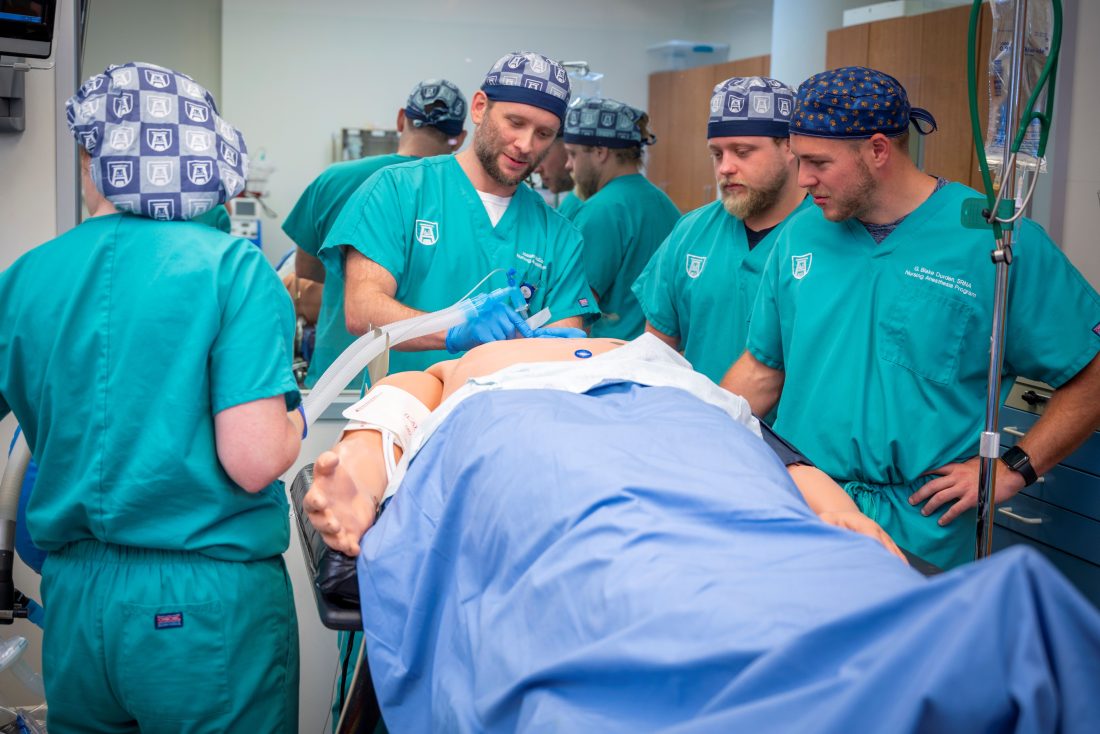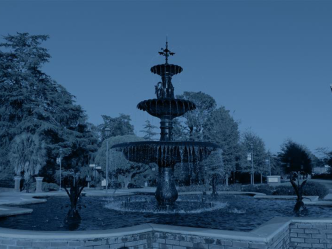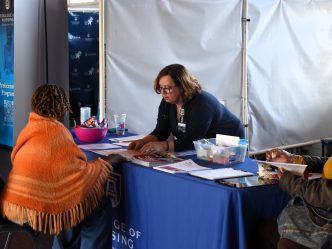Every January, the health care community celebrates Certified Registered Nurse Anesthetists in residence and programs across the United States, including those who are part of the Augusta University College of Nursing faculty. This year, National CRNA Week is celebrated Jan. 19-25.
According to American Association of Nurse Anesthetists, CRNAs take care of patients in their most vulnerable moments, administering over 58 million anesthetics each year. CRNAs use their knowledge of pharmacology and physiology to guide the patient from being awake through a fully unconscious state and back in a safe and effective manner.
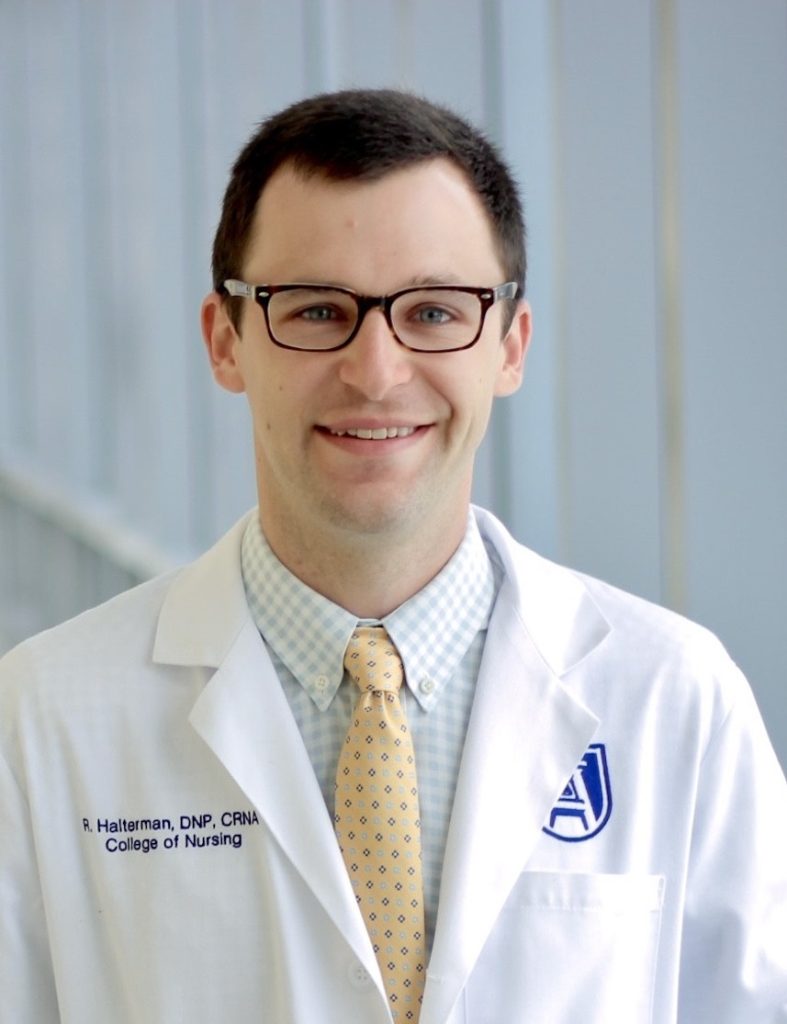
Reed Halterman, DNP, assistant program director and clinical director for nursing anesthesia, has a direct impact on the successes of student CRNAs at AU.
“I have been blessed to see many sides of anesthesia through my career, including a practitioner, a teacher and an advocate,” Halterman said.
“This is the greatest profession you could choose,” he said of nurses considering becoming a CRNA. “It is a hard mountain to climb, so connect with your state association for opportunities in shadowing and mentoring, as I did, and keep working to achieve your goal.”
Halterman volunteers his time and expertise to organizations like the Georgia Association of Nurse Anesthetists, where he served as past president and is currently a program committee chair.
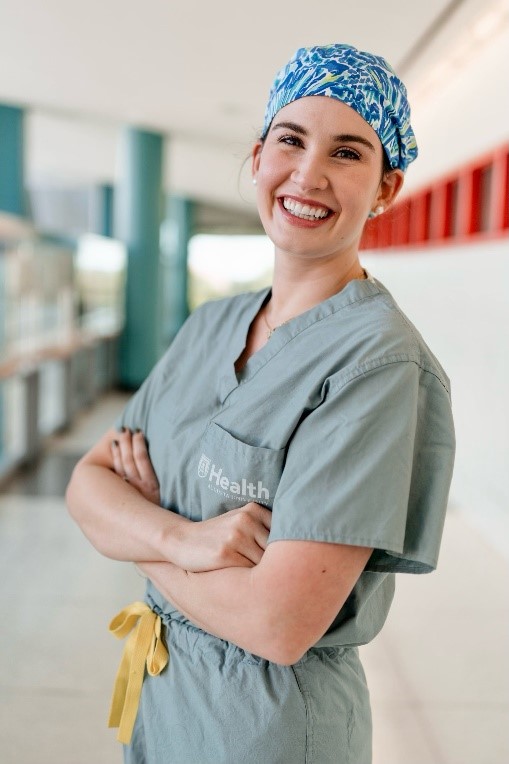
While Elizabeth Gay, DNP, is a newer faculty member, she is very familiar to the college. A double alumna of CON, Gay credits mentorship as a critical piece in her academic and professional journey.
“If you’re aspiring to become a CRNA, don’t hesitate to connect with CRNAs you meet at the hospital or through other networks,” Gay shared.
Her journey as a nurse anesthetist seemed destined, as she grew up with a nurse mother and an anesthesiologist father. Through their influence and her own determination to make an impact, Gay became a pediatric nurse anesthetist before deciding to educate others.
“I feel immense pride in being a nurse anesthetist,” Gay said. “I truly feel that I am making a positive impact on the health and well-being of my community.”
CRNAs can be found in hospitals, surgical clinics, military service, outpatient care centers and more, according to the Mayo Clinic. They contribute to the overall safety of those undergoing procedures and guide their recovery and well-being afterward. Be sure to thank a CRNA this week.
 Augusta University
Augusta University
